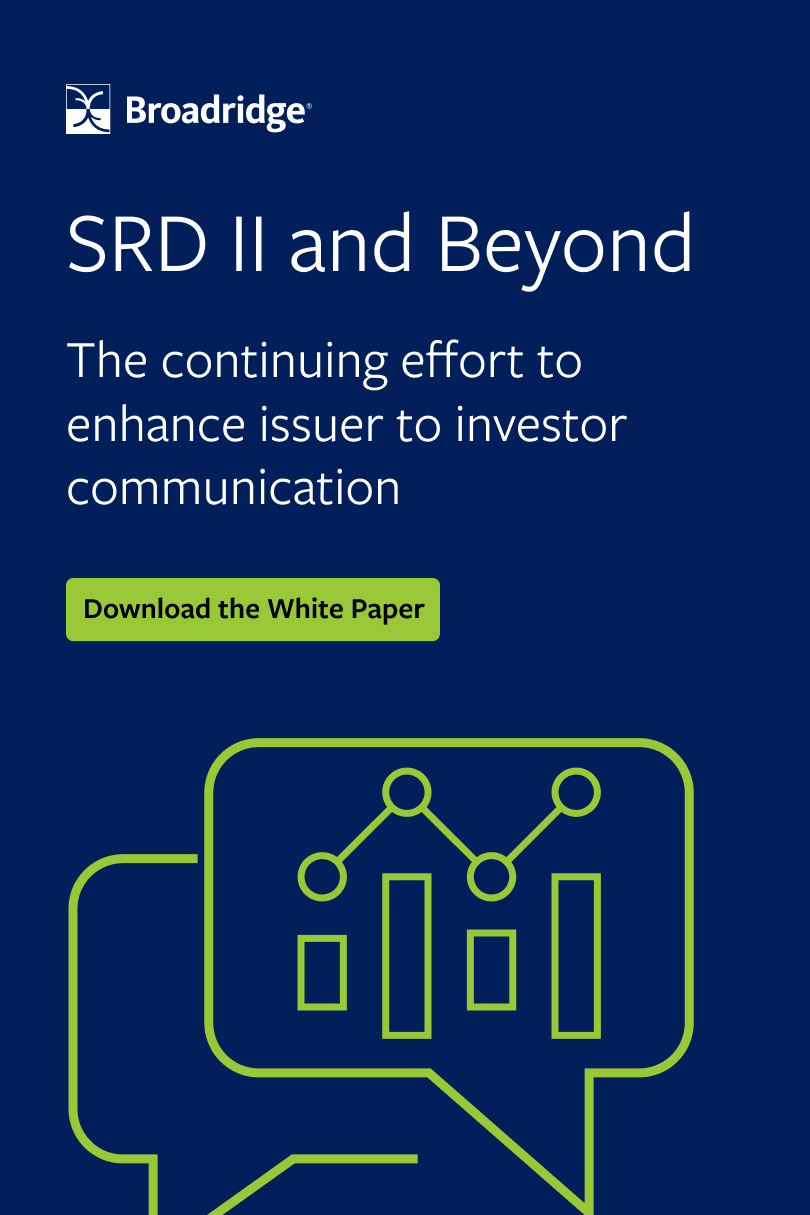Over the past year, the financial services industry has been dominated by preparation for the implementation of the second Markets in Financial Instruments Directive (MiFID II), which comes into effect 3 January 2018.
Many industry participants have raised concerns about the scope of the changes and the uncertainty surrounding the directive, with some suggesting it has been the biggest challenge of the year.
With only 28 days left to go before initiative comes into effect, less than half of attendees at the Global Custody Forum in London said they felt they would be compliant in time.
In a session on the countdown to the directive, run by Oliver Laurent, senior product manager of regulatory change at HSBC, 75 percent of those in attendance said they would be affected by the implementation of MiFID II, however significantly fewer were confident they would be compliant by the deadline.
Laurent suggested that it has been “very difficult” to comply with all components of MiFID II, and that market participants will likely take a ‘day-one’ and ‘day-two’ approach on the implementation date.
According to Laurent, market participants will not report on things like corporate actions on day one, but will be ready to report on other components, such as legal agreements.
Part of EU legislation, MiFID II regulates firms that provide any services to clients linked to financial instruments and venues where these instruments are traded. Laurent suggested that there has also been interest in the directive from other countries outside of Europe.
He said: “In the coming years we could see similar initiatives in emerging markets such as Asia and the Pacific.”
“It is good to see interest from other countries who want to take up the benefits of MiFID II.”
Elsewhere, in a panel discussion on the new custody landscape, it emerged that asset servicing professionals have mixed views on whether the market will see new global custody players appearing over the coming years.
On the panel, which focused on how worldwide custody is changing, Rohinton Mewawala, COO of StockHolding, said that the top 10 global custodians will remain as they are in the near future, however he suggested that, nevertheless, “there will be change”.
Mewawala explained that institutions will start to do more around customer service, using application programme interfaces.
“This way, the customer will be able to read data and pick up what they want from there, using that data and producing analytics in the way they want to.”
He commented: “I think there will be change, but I still don’t think the top are going to lose their space, because I think in the forthcoming market, even if they do not change for the next five years, it is not going to be all chartered.”
“Custodians are going to be inefficient,” he said, and stressed that they “need to do something”.
However, Mewawala explained that if custodians work on this today, 10 years from now, the same top 10 will stand, but they will be making a good profit.
Ulf Noren, global head of custody sales at SEB, had a different outlook, suggesting that people making these predictions “might regret them”.
Noren said: “This will be a long journey, but I think we will see a slow consolidation sweeping over a number of central securities depositories.”
He also noted that this could be the case on the sub-custodian side.
Technology will also play an “important part” in this process, according to Noren.
He said technology will change the industry we work in, “providing we find a way to overcome the biggest threat we will ever face, and that is cyber crime”.
At the conference, attendees also heard how three-day movement of cash by BACS in the UK is “shameful”.
This panel, on how not to fail in the post-trade transitions, featured Beverley Furman, managing executive of central securities depository operations at Strate, who agreed that “banks are waking up and realising the UK is slow.”
She said: “These UK banks do need to realise that technology is the future of cryptocurrencies”.
To achieve this increase in overall speed, Furman said there needs to be “more of a collaboration and a sense of partnership [between global custodians]”.
“Global custodians’ main concerns are asset recording and settlement achievements,” she said.
Other panellists noted that automation in both T+1 and T+2 environments are beneficial to the industry and the speed of moving cash.
R. Anand, head of custody at StockHolding, suggested that “the level of automation in a T+1 environment helps us”.
Brian Allis, senior vice president and head of State Street trustees, added: “With T+2 you can usually get all your cash ready quicker.” Furman added that if there were to be a clearer structure in the industry across the world, regardless of time zone and automation, it would help financial management information systems especially.
Allis said the US model is one “to follow and learn from”.
“There are single platforms of dismediation already happening in the US—it’s way ahead of Europe in that sense,” he explained.
“MiFID II has given the UK challenges with a compromised timeline. But US models, and also German models, in terms of buy side, are the ones to follow.”
Emerging markets in the custody space were also a talking point at this year’s forum.
In his keynote address, Mewawala spoke on key trends in emerging markets, suggesting that they are playing an increasingly important role in the global economic system.
More than half of global economic growth is now driven by markets such as Brazil, China, India, Russia and South Africa, according to Mewawala.
He suggested that, for investors, these countries have also offered some of the “most spectacular” returns over the long-term.
According to statistics presented by Mewawala, China’s new normal growth rate is “significantly lower” than those recorded in the past two decades, while India has the highest gross domestic product growth rate projection.
However, Brazil is suffering from stagflation and negative growth rates, while Russian economic plans to revive growth have been affected by a steep fall in oil prices and economic sanctions.
Finally, the presentation showed that South Africa is currently on the brink of recession and is also battling stagflation.
Mewawala explained that all emerging markets are currently facing challenges, such as a significant funding gap, limited choice, expensive capital, lack of avenues to deploy domestic savings, poor pricing efficiency, currency issues and lack of diversification.
However, emerging markets can also take advantage of opportunities including the development of a liquid government debt securities market, development of a broader investment base, an increase in issuer participation, a path for sustainable integration into global markets, tax incentives and empowering regulatory institutions.
Mewawala said: “India is growing, and returns are going to be higher than 20 percent.”
He added that India will be the “most profitable destination for custodians for another five to 10 years”, while other emerging markets will also “bounce back”.



